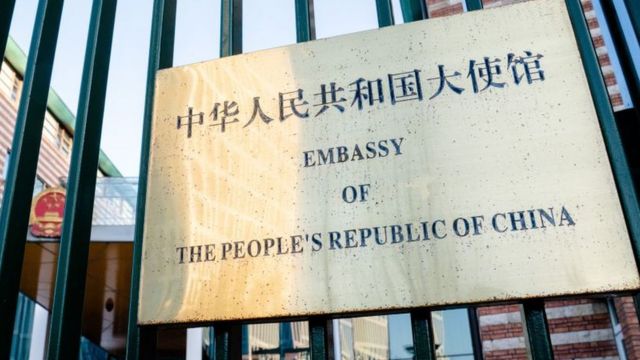The Dutch government has accused China of having two unauthorised police stations in the country.

The Dutch media has received crucial evidence that the so-called “Overseas Service Stations” that were installed to provide diplomatic services are being used as a tool to silence the Chinese diaspora living in Europe.
The Dutch Foreign Ministry’s spokesperson said that these unofficial police stations are illegal, to which the Chinese government responded that they were not aware of their existence.
The investigation was carried out by the Dutch media as a result of a report titled “Chinese Transnational Policy Gone Wrong” by a Spanish NGO called Safeguard Defenders.
According to the report, the Chinese government has successfully established fifty-four so-called “Overseas Service Stations” by public security bureaus from two of its provinces across the world in five continents and twenty countries. Most of them are situated in Europe in countries such as nine of them are located in Spain, four in Italy and two in the UK, one in London and another in Glasgow.
The service stations were created on the pretext of decreasing the rate of crime involving Chinese nationals and other administrative tasks such as the renewal of Chinese driving licenses. However, it was discovered that these stations were used to silence and deport dissidents who had fled to other countries and spoken out against China, the Chinese government, and the Communist Party.
Following the story of Wang Jingyu, a Chinese dissident told an investigative journalist that he received a phone call from one of the service stations and said that he was being pursued by the Chinese police in the Netherlands.
He also said that he was the victim of a systematic campaign of harassment and intimidation and that he was urged to return to his home country so that they could “sort out his problems” and was told to think of his mother and father.
Asking about their illegal police stations, the Chinese Embassy in the Netherlands said that they were not aware of the station’s existence. To which, the Dutch Foreign Ministry responded that they would investigate the workings of the service stations and take “appropriate actions.”
Services such as the renewal of passports are usually carried out by their respective consulates or embassies, and they are protected by diplomatic rules in accordance with the Vienna Convention, of which both the Netherlands and China are members.
If proven true, China will be guilty of violating the territorial integrity of the Netherlands and the protection offered by the country’s domestic laws by threatening alleged fugitives’ families to urge their relatives to return home.
A law was passed in China on the 23rd of September, called the Anti-Telecom and Online Fraud Law, which gives extraterritorial power to the Chinese government over Chinese nationals living in foreign countries who spread “fake news” and ” authority” to Chinese police outside their country.












